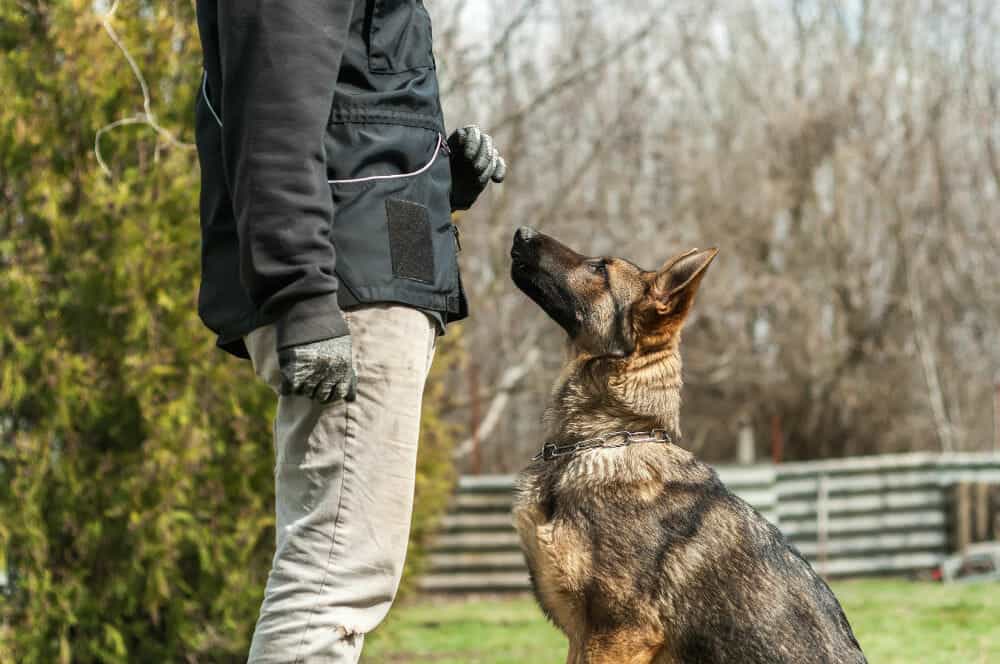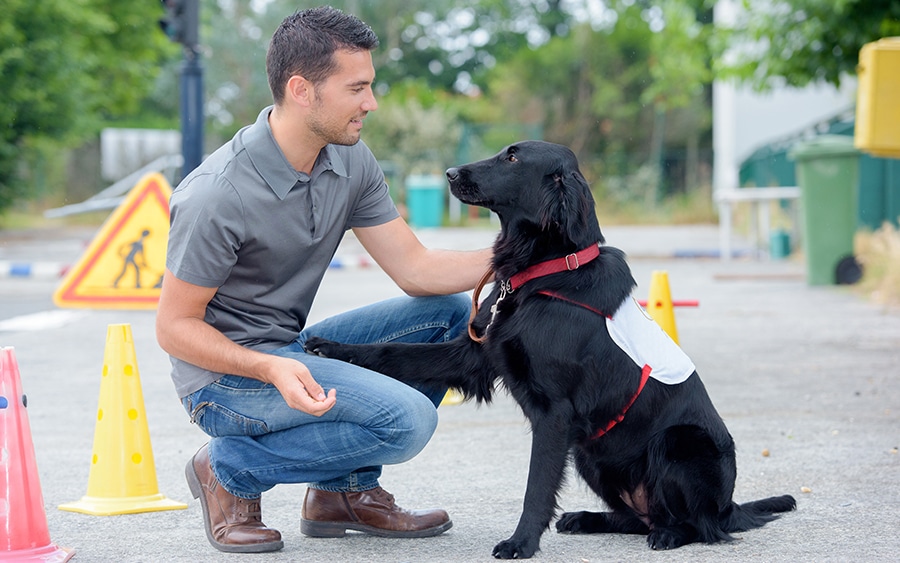Dog Training Charlotte NC: Your Path to a Well-Behaved Dog
Dog Training Charlotte NC: Your Path to a Well-Behaved Dog
Blog Article
Unlock Your Pet dog's Possible: Proven Dog Training Strategies for Success
Efficient pet training is a nuanced procedure that hinges on recognizing canine actions and employing medically backed strategies. dog training near me. By integrating positive reinforcement, establishing clear commands, and focusing on socializing, pet dog owners can grow an effective partnership with their family pets. Difficulties frequently occur that require tailored options and a client strategy. Checking out these verified methods exposes not just the potential for behavior renovation however additionally the deeper bond that can be developed in between proprietor and pet dog. What essential approaches must be thought about to absolutely unlock your pet's possibility?
Comprehending Pet Dog Behavior
Understanding pet dog behavior is important for reliable training and promoting a positive relationship in between dogs and their proprietors. An extensive understanding of canine body language, vocalizations, and social interactions is vital for recognizing their requirements and feelings. Pets interact mostly with non-verbal cues; as an example, a wagging tail may show enjoyment, while pinned ears can signal anxiety or entry.

Moreover, ecological elements play a considerable duty in forming a dog's actions. Modifications in regular, brand-new environments, or the visibility of unfamiliar people can lead to stress or anxiousness in canines. Acknowledging these triggers makes it possible for proprietors to minimize damaging responses and create ideal training approaches.
Ultimately, a deep understanding of dog actions lays the structure for successful training methods, enhancing both actions and the overall bond in between the canine and its proprietor. dog training charlotte. This knowledge is vital for fostering a well-adjusted, satisfied canine buddy
Favorable Support Techniques
Efficient training depends greatly on favorable reinforcement strategies, which have been shown to generate considerable outcomes in shaping wanted actions in pets. This technique involves awarding a canine for showing specific habits, thereby boosting the likelihood that these habits will be repeated. Rewards can take various kinds, including treats, appreciation, toys, or play, depending on what inspires the specific pet dog.

It is vital to gradually terminate rewards as the canine discovers the habits, transitioning to periodic support. This approach maintains the habits over time while stopping dependency on constant benefits. By focusing on positive support, trainers can cultivate a trusting relationship with their pet dogs, promoting a participating and healthy training setting that boosts total obedience and performance.
Establishing Regular Commands
A basic aspect of successful dog training is the facility of consistent commands. Uniformity in commands is essential for reliable communication between the pet dog and the fitness instructor. When commands are uniform, pet dogs find out to connect specific words with desired habits, which accelerates the training procedure and enhances useful reference understanding.
To establish regular commands, it is crucial that all household members utilize the same terms and motions. If one individual makes use of "sit" while another says "rest down," it can create confusion for the pet dog. Select clear, unique words for commands and ensure everyone associated with the pet's training complies with these options.
Strengthen commands with regular method, ensuring that the pet receives ample opportunities to respond appropriately. When a pet successfully complies with a command, instant positive reinforcement ought to adhere to.
Lastly, be client. Developing regular commands requires time and initiative. With devotion and clearness, you will certainly help your pet dog develop a strong understanding of expectations, eventually leading to a well-behaved friend.
Socializing and Direct Exposure
Socializing a canine is necessary for fostering a confident and well-adjusted buddy. This procedure includes exposing your pet to a range of atmospheres, individuals, and other animals to create their social skills and versatility. Early socialization, preferably why not try these out in between the ages of 3 to fourteen weeks, is critical, as it prepares for a pet's future behavior.
During socializing, goal to offer positive experiences in various settings, such as parks, hectic streets, and homes with various other family pets. Present your dog to numerous stimulations, consisting of sounds, views, and smells, making certain that each experience is rewarding. This exposure assists alleviate fear and stress and anxiety, paving the means for a much more durable canine.
Taking part in controlled group play sessions with other dogs can likewise improve social skills, teaching your pet suitable communications and boundaries. Constantly check your pet dog's convenience degree throughout these experiences, gradually raising exposure as their self-confidence grows. Bear in mind, the objective is to develop an all-around animal that flourishes in varied circumstances, promoting a harmonious partnership with both human beings and various other pets. Prioritizing socialization will considerably add to your dog's general joy and actions throughout their life.
Overcoming Common Educating Challenges

Pet dogs might have a hard time to focus in active or unknown settings. Gradually desensitize your iaabc courses dog to diversions by starting training in a quiet atmosphere and slowly introducing more stimuli as they end up being skilled.
Furthermore, behavioral problems like jumping or too much barking can end up being irritating. Address these by teaching alternate habits, such as sitting comfortably when welcoming visitors. Consistency and perseverance are vital; reinforce preferred habits constantly and prevent abuse, which can result in confusion.
Lastly, acknowledge that each dog is distinct, and training timelines may vary. Tailor your approach to your canine's specific requirements, and seek expert assistance if needed. With determination and the appropriate approaches, overcoming these obstacles can result in a well-trained, satisfied canine companion.
Verdict
In final thought, opening a pet's prospective necessitates a comprehensive strategy that incorporates an understanding of canine habits, the application of favorable support strategies, and the establishment of regular commands. Early socializing and direct exposure to diverse settings further improve a pet's flexibility and confidence. By addressing common training challenges with customized techniques and perseverance, a participating and unified partnership between pet and handler can be promoted, ultimately leading to a mannerly companion efficient in flourishing in various scenarios.
Efficient pet training is a nuanced process that pivots on understanding canine actions and using scientifically backed strategies.Recognizing pet behavior is necessary for reliable training and fostering a positive partnership in between canines and their proprietors.Efficient training depends greatly on positive support strategies, which have actually been shown to generate significant outcomes in shaping desired actions in pet dogs. When commands are uniform, pets learn to connect certain words with preferred behaviors, which speeds up the training process and enhances understanding.
In final thought, opening a dog's prospective necessitates a comprehensive technique that incorporates an understanding of canine habits, the application of positive reinforcement methods, and the establishment of consistent commands.
Report this page